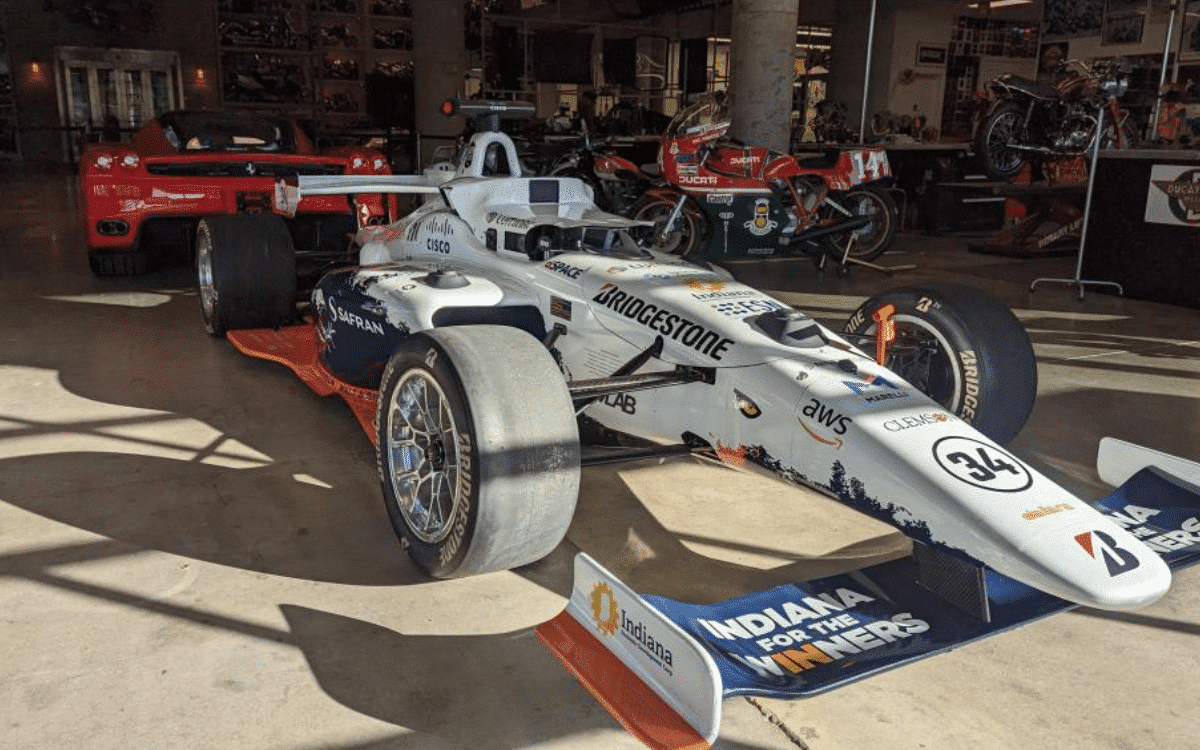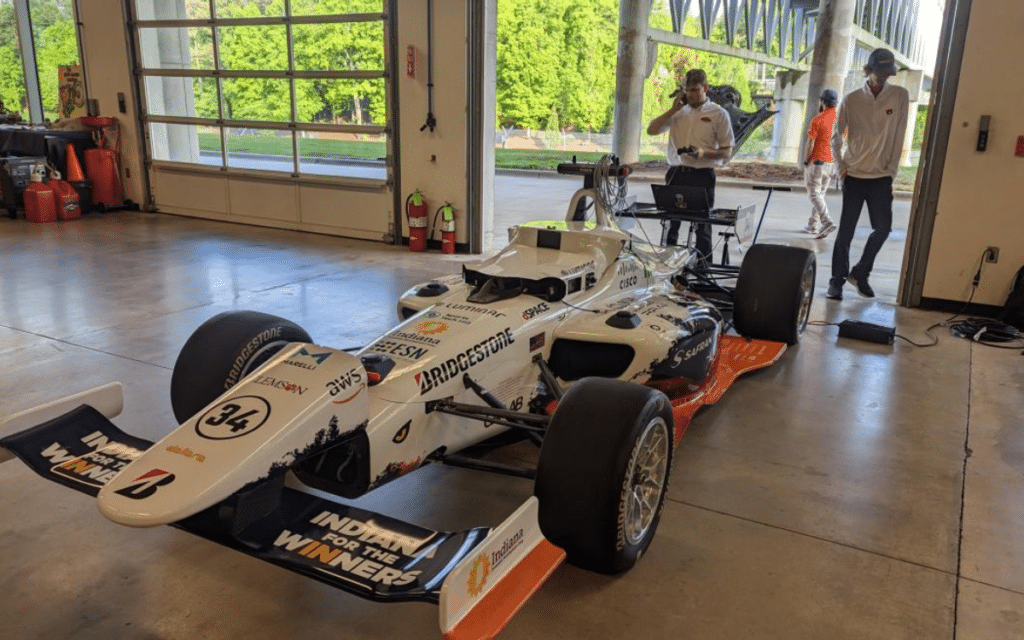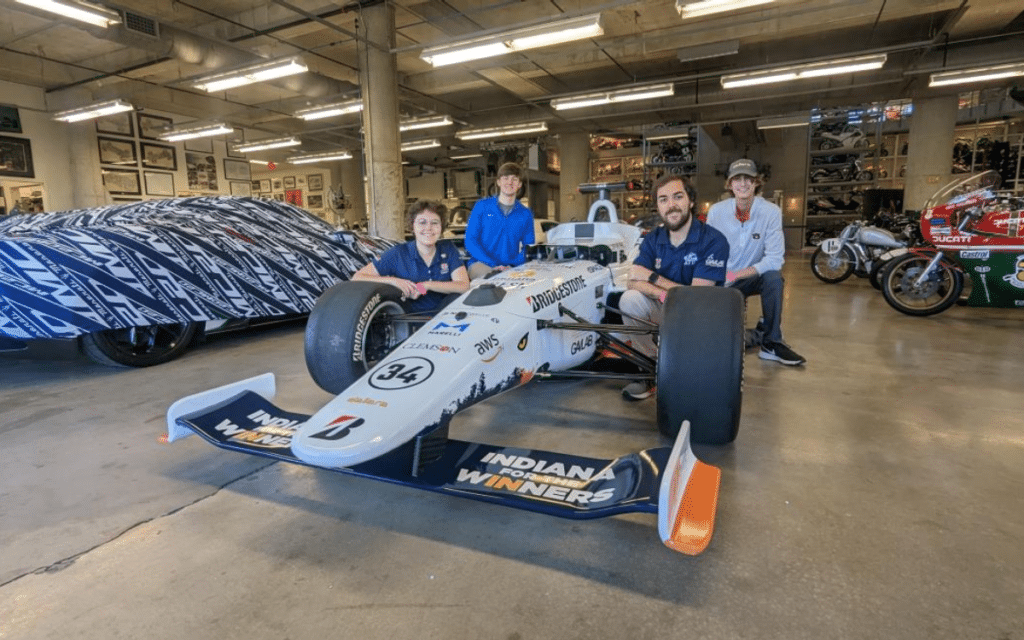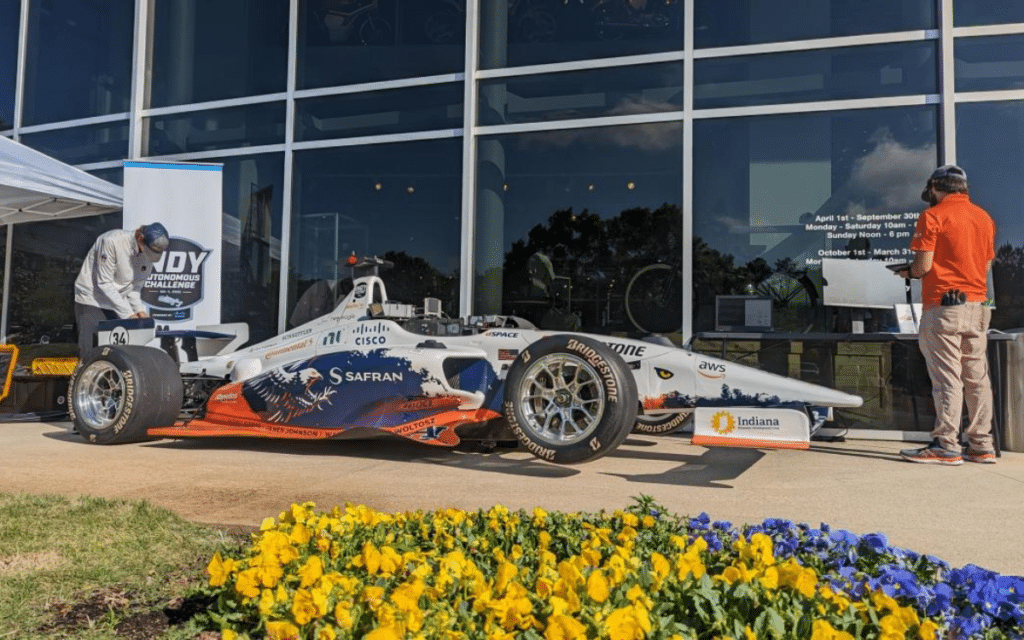
# News
Indy Autonomous Challenge Team Sponsored by Safran Completes First Road Test in USA
Auburn University secures its own autonomous vehicle testing track in partnership with Barber Motorsports Park in Alabama.
The Auburn University autonomous Indy race car, sponsored by Safran Electronics & Defense, has achieved a new milestone. The engineering school recently partnered with Barber Motorsports Park in Birmingham, Alabama to conduct road tests. The car successfully completed a lap around the track without any human intervention, making it the first time a vehicle in the Indy Autonomous Challenge has completed a lap on a professional track in the United States.
This 880-acre, multipurpose race facility is located on the eastern fringes of Birmingham, Alabama, and hosts the Alabama Grand Prix Indy. Designed by one of the most prolific racetrack visionaries in the world, Alan Wilson, the track measures 2.38 miles (3.83 km) with 17 turns and an elevation change of 80 feet – which offers its fair share of technological challenges.

“This is quite different from our super speedway runs on flat oval tracks, which included serious banks (up to 30 deg) but no hills,” said Stephanie Meyer, Team Leader for Auburn’s Autonomous Tiger Racing. “We were very pleased with the tests. In our network chase car, we were able to reach 55 mph and run a lap time of just under four minutes. From here, we will improve our software.”
The road course features a number of challenging turns and elevation changes, including a blind crest that drops 35 feet (11 m) before reaching the track’s longest straightaway. The combination of banks and hills requires more dynamic cornering and braking as the car navigates the turns and curves of the track. The team is now looking to optimize the car’s performance and take on even more challenging tests.
“In addition to discovering some localization challenges with the pedestrian bridges, we want to make our speed controller and shifting logic more robust for the hills and slowdowns/speedups required for road course turns,” Meyers said.

Using Skydel, Meyers added that their work needn’t stop once the team leaves the track. “With Safran’s hardware-in-the-loop GPS simulation unit, we have been able to test our localization software and hardware between track runs – and with new tests designed around the GPS outages at pedestrian bridges, we can develop further for this unique road-course challenge offline,” she said.
The Indy Autonomous Challenge (IAC) is a groundbreaking event that brings together the worlds of motorsport and autonomous vehicle technology. This unique competition tasked university teams with designing and developing self-driving racecars capable of competing in a high-speed, head-to-head race during the annual Consumer Electronics Show in Las Vegas, Nevada.
The challenge aims to push the boundaries of autonomous vehicle capabilities, fostering innovation and collaboration among the brightest minds in the field. By promoting advancements in AI, sensors, perception, and control systems, the IAC accelerates the safe implementation of autonomous vehicles on public roads.

Auburn University is a member of the Minerva Academic Partnership Program. This Safran program supports the advancement of Position, Navigation & Timing (PNT) research and establishes sustainable partnerships with the academic community to jointly develop future Navigation & Timing technology and solutions. Minerva offers a Skydel GNSS Simulation Engine license for member institutions, as well as temporary student licenses.
“We are proud of Auburn University’s achievements and look forward to future collaborations,” said Leisa Butler, who chairs Safran’s Minerva program. “Through Safran’s portfolio of world-leading Navigation & Timing solutions, including Skydel, we continue to drive autonomous vehicle technology forward.”


